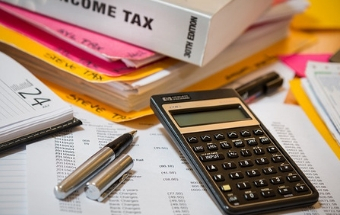Not only is VAT fraud taken seriously by HMRC, it can cause untold damage to a company’s reputation, not least due to the fact that taxpayers resent it when they find out someone else hasn’t been paying their way towards the running of essential services in the UK like the NHS, schools and hospitals. For this reason, HMRC choose to publicly name and shame offenders by publishing a list of deliberate tax defaulters, which includes those who avoid VAT.
Penalties for VAT fraud
Due to the UK’s large scale problem caused by loss of revenue through many forms of tax fraud, VAT fraud sentencing can be severe, with prison a possibility in addition to financial penalties for the most serious cases. Indeed, recent figures from the Ministry of Justice show that prison sentences have increased by 25% from an average of 3 years 3 months to 4 years and one month. This reflects a recent push from HMRC to clamp down on all forms of tax evasion and to make an example of those who are found guilty of committing it.
As a result, if you find out you are facing accusations of VAT fraud, it’s essential to speak to a specialist fraud lawyer as soon as possible. The team at Purcell Parker can guide you through what will inevitably be a stressful process, using their years of experience defending VAT fraud cases in order to secure the best possible outcome. Not only that, they will keep you informed of every aspect of your case using plain English.
What exactly is VAT fraud?
VAT stands for Value Added Tax and as consumers we pay it on many of the goods and services we buy on a day-to-day basis. VAT fraud is the deliberate avoidance of this tax by failing to charge it when obliged to, or charging customers for it then failing to pay it to HMRC.
There are many ways a company or individual can commit VAT fraud. These include:
- Not registering a company for VAT when there is a legal obligation to do so; companies with a VAT taxable turnover of over the current threshold of £85, 000 are required by law to register for VAT.
- Charging customers for VAT in circumstances where no VAT is payable.
- Making false claims for VAT payment (this is known as Missing Trader Intra-Community VAT fraud or carousel fraud).
How is VAT fraud committed?
Those engaged in committing VAT fraud use a variety of techniques, some of them sophisticated and designed to be difficult for the authorities to spot. Signs that VAT fraud may be being committed include:
- Offering a discount to customers who pay in cash.
- Refusing to take payment by card or bank transfer or trying to persuade customers not to pay this way.
- Failure or reluctance to provide an invoice or receipt for services or goods received.
- Putting money in a till but failing to process the sale through the till system.
- Selling goods for a price that significantly undercuts the competition.
- Asking customers to make the payment to another company or individual.
Who can be prosecuted for VAT fraud?
VAT fraud is very often driven by individuals who are fully aware of the deliberate actions they are taking in order to avoid their tax obligations. However, not every case of VAT fraud is as cut and dried as that. Here at Purcell Parker we begin by establishing the unique circumstances of your case in order to plan the appropriate defence case for you.
It’s important to remember that you do not have to be the person behind a deliberate policy of VAT fraud to be implicated in a case. Also, as the VAT fraud hotline is confidential, it can be difficult to establish the facts of the accusation. However, the confidential nature of the hotline provides a way for people to report fraud without fear of repercussions: this can include employees who feel coerced into committing VAT fraud by an employer.
Expert tax solicitors on your side
If you are in the unfortunate position of being accused of VAT fraud, we can help. Our first conversation will always take place on a no-obligation basis and we can see you at our Birmingham city centre offices, or at a time or location of your choosing. In many circumstances, we are able to provide a fixed-fee quote for your case.
To find out more, please call 0121 236 9781 or fill in our contact form.



